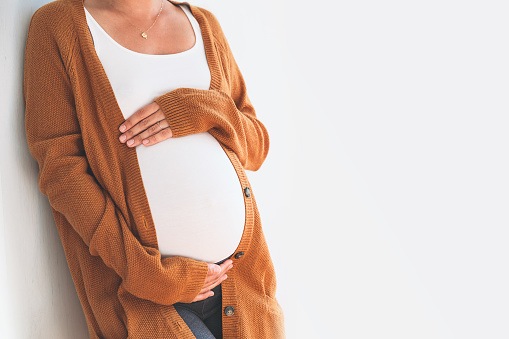
A study published in the American Journal of Epidemiology found that maternal obesity is linked to a higher risk for childhood cancers. “The results suggest a significant role of early-life exposure to maternal obesity- and fetal growth–related factors in childhood cancer development,” the researchers noted.
Researchers assessed Pennsylvania birth and cancer registry files to identify births and childhood cancers from 2003 to 2016. The analysis included 1,827,875 infants (13,785,309 person-years at risk), of whom 2,352 were diagnosed with any cancer and 747 were diagnosed with leukemia before the age of 14 years. The most common diagnoses were acute lymphocytic leukemia and neuroblastoma.
Increased risk for childhood leukemia
Children born to mothers with a body mass index (BMI) of ≥40 kg/m2 had a 57% (95% CI, 12-120) greater risk of leukemia; these children had a 1.32 times higher risk of developing any type of cancer and 1.57 times higher risk of leukemia compared with individuals born to mothers with BMIs of 18.5 kg/m2 to 24.9 kg/m2. In addition, children born to mothers with pre-pregnancy weights of 90 kg/m2 to 99 kg kg/m2 and ≥100 kg/m2 had a 46% and 42% higher risk for leukemia, respectively.
Newborn size of ≥30% higher than expected was associated with 2.2-fold and 1.8-fold hazard ratios for total childhood cancer and leukemia, respectively, relative to those with expected size. Children <30% below expected size also increased the overall cancer risk (P<0.0001). Newborn size did not affect the association between maternal obesity and childhood cancer.
“We are dealing with an obesity epidemic in this country,” said senior author Jian-Min Yuan, MD, PhD, professor of epidemiology at Pitt Public Health and co-leader of the cancer epidemiology and prevention program at University of Pittsburgh Medical Center Hillman Cancer Center, in a press release. “From a prevention point-of-view, maintaining a healthy weight is not only good for the mother, but also for the children, too.”







 © 2025 Mashup Media, LLC, a Formedics Property. All Rights Reserved.
© 2025 Mashup Media, LLC, a Formedics Property. All Rights Reserved.